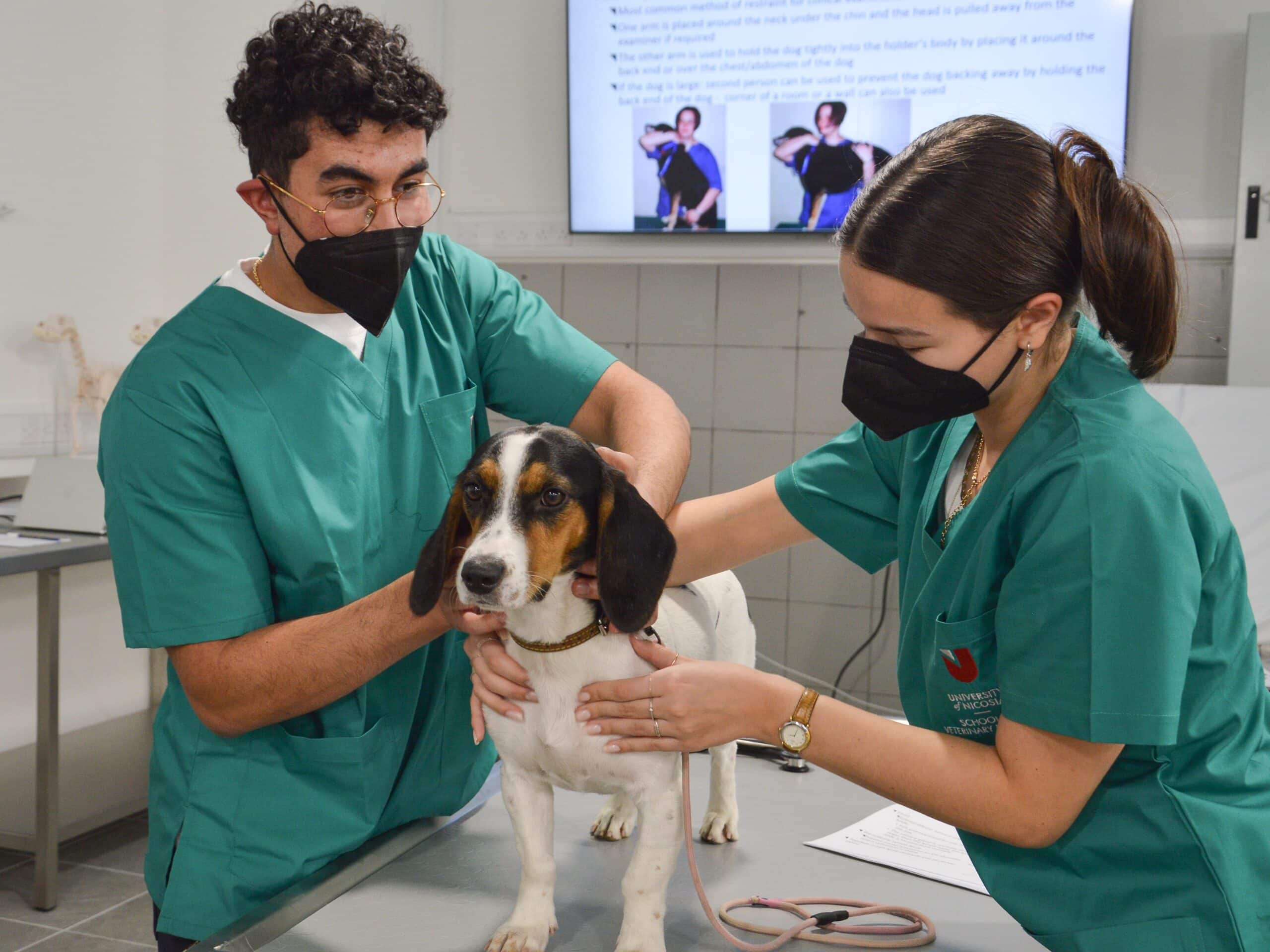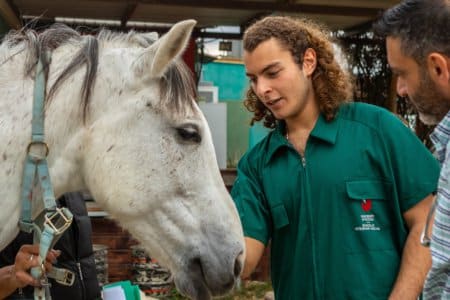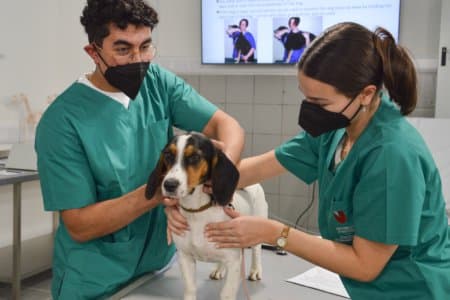With diseases spreading further and faster than ever, a health threat to one is now a threat to all. This is where One Health comes in and future veterinarians must acquire the latest training and espouse this concept. This is an approach to designing and implementing programmes, policies, legislation and research in which multiple sectors communicate and work together to achieve better public health outcomes.
One Health recognises that the health of people is connected to the health of animals and the environment. This has been evident throughout the pandemic with biosafety and biosecurity concerns. Examples of this include our combatting of antibiotic resistance, recall of food products like oat milk for contamination, product of origin debates, the role of sanitation in extending human life historically, and zoonoses (diseases that can spread between animals and humans, such as monkey pox, flu and rabies).
The University of Nicosia (UNIC) embraces the One Health concept. The School of Veterinary Medicine (UNIC Vet School), the Medical School and other health-related departments work closely together, so that both veterinary and medical students gain a well-rounded education.
The Dean of UNIC School of Veterinary Science, Professor Stavros Malas, explains why such collaboration is vital in today’s world: “The close synergies between the UNIC School of Veterinary Medicine, the Medical School and other health-related departments of the university create exciting research and interprofessional learning opportunities and an ideal academic ecosystem to offer you an all-rounded education in veterinary medicine that meets the collective health and safety needs of the modern world.”

Discover a promising veterinary education at the prolific UNIC Vet School. Source: Shutterstock
Well-rounded Veterinary academics
The five-year Doctor of Veterinary Medicine (DVM) programme offers a first-class scientific and clinical training in the multifaceted science underpinning veterinary practice and research. Students not only discover the basic biological principles of normal body function and disease; they also learn how to distinguish the pathological from the normal, prevent illness, and safely manage animal production processes.
An innovative and student-centred curriculum makes this possible. It covers all of the fundamental topics of veterinary medicine and promotes the early development of clinical skills through comprehensive clinical training in small and large animals. Through the Public Health Management course, students discover how the veterinary profession contributes to improving public health and the importance of food inspection and safety. The Food Safety and Hygiene course provides a deeper understanding of the importance of food safety for human health, as well as the relevance of safety of foods from animal origin. Foodborne diseases are explored too.
By fully aligning with the One Health agenda, the DVM course ensures students know the relationship between the health of humans and animals within a healthy and sustainable environment. As graduates, they are well-prepared to become veterinarians who can not only improve and safeguard public and animal health but also protect and preserve a healthy ecosystem as well.

UNIC Vet School graduates are set to become veterinarians ready to thrive and contribute in an increasingly interconnected world. Source: University of Nicosia
At UNIC School of Veterinary Medicine, students explore a variety of learning opportunities such as lectures, guest lectures, tutorials, practical work, anatomy, histology, clinical skills, observation of clinical practice, supervised clinical experience, portfolio-based learning, role play, independent study, digital recording and presentations.
“This rigorous academic programme has been developed for a global audience of students. While keeping in mind our students’ diverse backgrounds and international aspirations, the curriculum has been aligned with Day 1 Skills and Competencies as required by world-recognised professional organisations such RCVS, AVMA, EAEVE and the World Organisation for Animal Health,” says Programme Director Michael Herrtage.
“This ensures students continue to acquire the required skills throughout their studies over the five years of the programme. A multimodal approach to learning and intramural and extramural acquisition of skills will help create well-rounded and well-prepared graduates.”
A leading university
UNIC is one of the leading, research-oriented, universities in the Mediterranean region. It is committed to teaching, research and innovation, sustainability, societal engagement and cultural contribution. Little wonder it is ranked 47th for International Outlook in the Times Higher Education (THE) World University Rankings 2022 and 32nd globally in the THE Impact Rankings 2021.
Learn more about the University of Nicosia’s School of Veterinary Medicine here.
Follow the University of Nicosia’s School of Veterinary Medicine on Facebook, Instagram, and LinkedIn













